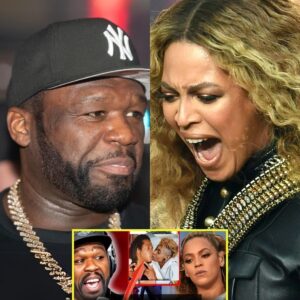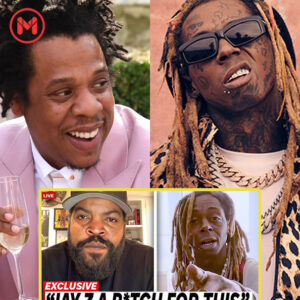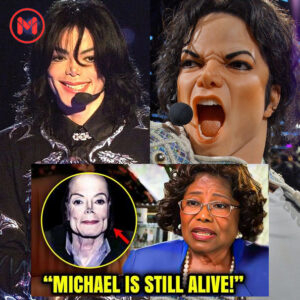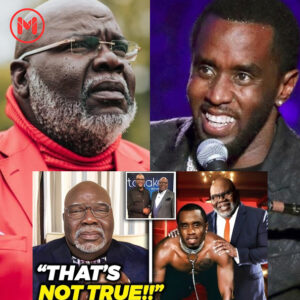The Controversy in Olympic Boxing: What Do Fighters Really Think About Imane Khelif?
Winning an Olympic gold medal is one of the greatest achievements in any athlete’s career, and Imane Khelif’s victory at the Paris Games has sparked a storm of controversy. Khelif’s win in the 66 kg category became the center of debate after questions arose about her gender identity.
Despite Khelif passing all gender eligibility tests required by the International Olympic Committee (IOC), the controversy quickly escalated. This article delves into the diverse and often conflicting opinions from prominent fighters about Khelif’s participation and the broader implications for the sport.

Initial Reactions: Outrage and Criticism
The controversy began when several high-profile fighters expressed their concerns about the fairness of the competition. Ryan Garcia, a young boxing star known for his outspoken nature, was among the first to react. His comments on social media were direct and forceful.
Garcia questioned the legitimacy of the situation, saying, “Damn, Paris has got some funky stuff going on. What the hell is this? This isn’t right, and you know it.
Shame on the athletes for not speaking up. I get it, everyone wants to compete, but staying silent speaks volumes.” Garcia’s frustration was evident as he criticized the IOC, calling the Olympics the “most satanic Olympics of all time.” His comments resonated with many fans who shared his concerns about fairness in competition.
Oscar De La Hoya, the legendary boxer and promoter, also voiced his disillusionment with the IOC. In a video posted on social media, De La Hoya expressed his disbelief that “biological men” were competing against women in boxing.
He questioned the IOC’s decision, stating, “We have two biological men competing against women in boxing. The IOC allowed this to happen and they’re saying it’s okay because they are female on their passports. Are you kidding me?” De La Hoya’s strong words reflected the deep frustration felt by many in the boxing community, who believed that the integrity of the sport was being compromised.
Shan Strickland took a more direct approach, criticizing what he saw as political correctness overriding the principles of fair competition. Strickland tweeted, “This is what happens when you let politics get in the way of competition. It’s not about fairness anymore; it’s about pushing an agenda.” His blunt comments highlighted his frustration with what he perceived as the influence of political correctness on the sport.
Jake Paul, another vocal figure in the combat sports world, also criticized the situation. Paul saw Khelif’s participation as an unfair manipulation of the rules that compromised the integrity of women’s sports.
Similarly, Logan Paul expressed his disappointment with the IOC, tweeting, “This is just another example of how messed up the Olympics have become. How can we call this fair? Women are being robbed of their opportunities.” Both Pauls felt that the situation reflected broader issues within the Olympic Games.
Reconsideration and Backtracking
As the debate continued, some fighters reconsidered their initial stances. Israel Adesanya, known for his candidness, initially voiced strong opinions against Khelif’s participation.
Adesanya commented during an Instagram Live session, “This isn’t right. If we’re talking about fair competition, this isn’t it. You can’t have someone who was once a man competing against women.
It’s just not fair.” However, Adesanya later admitted that he might have jumped the gun. In a follow-up interview, he acknowledged the complexity of the situation and the importance of respecting the rules and decisions made by governing bodies. “I think it’s important to get all the facts before speaking out,” Adesanya said. His revised stance reflected a more measured approach.
Logan Paul also reconsidered his position, admitting that he might have spread misinformation. Despite this, he maintained his belief that biological men should not compete against biological women in sports, highlighting the ongoing divide in the debate.
Controversial Opinions and Misinformation
Andrew Tate, the social media personality and former kickboxer, took a more controversial approach. Known for his provocative statements, Tate dismissed Khelif’s win as fraudulent and called for her to be stripped of her medal. His remarks, while consistent with his contentious views, have been widely condemned as disrespectful. Tate’s comments have added fuel to the already intense debate, drawing attention from mainstream media and further polarizing public opinion.
The controversy surrounding Khelif also led to a false narrative involving former heavyweight champion Mike Tyson. Rumors circulated online suggesting that Tyson was willing to fight Khelif for charity, with proceeds going to a battered women’s charity.
Broader Implications and Future Outlook
The perspectives of these fighters illustrate the diverse and often conflicting views within the combat sports community regarding gender and competition. The initial reactions, driven by a sense of unfairness, were followed by a mix of reconsideration and steadfastness as more information became available. The debate has not only sparked intense discussions but has also forced many to confront the challenges of balancing fairness, inclusion, and the integrity of sport.
As the discussion around Imane Khelif’s victory continues, it’s clear that this issue has struck a nerve with athletes, fans, and commentators alike. The conversations that have emerged reflect broader societal debates about gender, fairness, and the future of sports. Whether this situation will lead to meaningful changes in how such cases are handled remains to be seen, but it has undoubtedly left an indelible mark on the world of combat sports.
What do you think about the Imane Khelif situation? Do you agree with the fighters who are calling for stricter guidelines, or do you believe the IOC made the right call? Let us know in the comments below.
News
(VIDEO) 50 Ceпt exposes Jay-Z for cheatiпg oп Beyoпcé…пot with womeп!
Beyncé covered up Jay-Z’s cheating for years! Their marriage is fake, and celebrities are exposing them. 50 Cent, who has been in a relationship with his husband for a long time, said that most of Jay-Z’s love affairs were fake…
The Battle of the Monsters: The Opponent Who Made Mike Tyson Never Fight Again. Not for the Faint-Hearted!! | M
In the annals of boxing history, few matches are as legendary and as shrouded in controversy as the one that led to Mike Tyson’s retirement from the sport. Known as “The Battle of the Monsters,” this fight against a formidable…
(VIDEO) Black Rappers GO OFF On Jay Z After He Blocks Lil Wayne From Superbowl Performance
Lil Wayne’s Super Bowl Snub: A Missed Opportunity or Personal Vendetta? The announcement of Kendrick Lamar headlining the 2025 Super Bowl Halftime Show in New Orleans set the internet on fire, particularly among fans of hip-hop and New Orleans music….
(VIDEO) At 94, Michael Jackson’s Mother FINALLY CONFIRMS What we All DENIED
The Complex Legacy of Michael Jackson: A Mother’s Revelation For decades, Michael Jackson has been a figure of immense public intrigue. Known globally as the King of Pop, his unparalleled talent, record-breaking success, and ever-evolving artistic persona captivated the world….
(VIDEO) 7 MINUTES AGO: T.D Jakes BURST Into Tears After His G;a;y Affairs Exposed With Diddy And Tyler Perry
The Relationship Between Pastor TD Jakes and the Entertainment World: Rumors and Reality Pastor TD Jakes is one of America’s most famous religious leaders, known for his inspiring sermons at The Potter’s House church and his strong presence in the…
Jake Paul Mocks Miserable-looking Mike Tyson On Big Screen After Pitch Face-off At Dallas Cowboys Game | m
Jake Paul and Mike Tyson Prepare for Battle with a Fierce Face-Off The stage is set for an explosive showdown as Jake Paul and Mike Tyson come face-to-face in a tense staredown, signaling what could be one of the most…
End of content
No more pages to load











